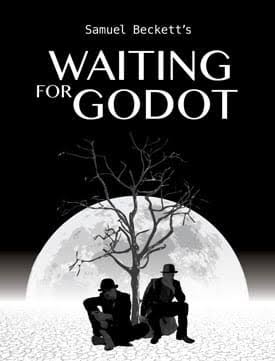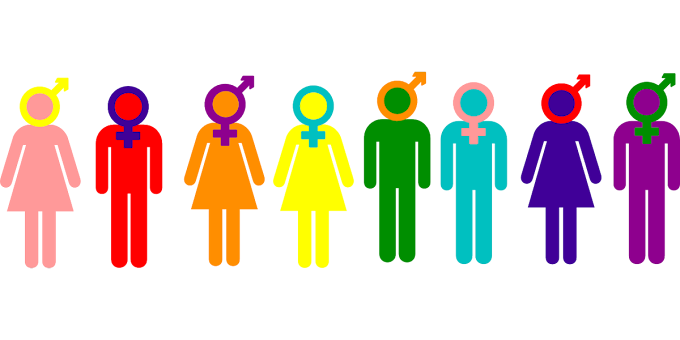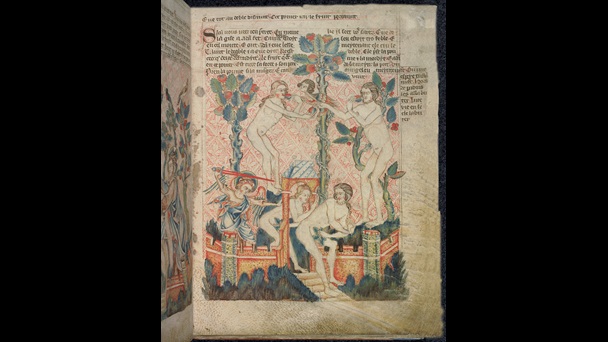Assignment
Topic : Masculinity and cultural conflict in 'Things Fall Apart'
Submitted to Department of English
MKBU
Prepared by Nishtha Makwana
M.A. Semester 4
Roll number - 15
Batch 2019-2021
Paper - The African Literature
Email id - nishthamakwana169@gmail.com
INTRODUCTION
The theme of clash of culture in Achebe‟s Things Fall Apart (1958) is not new as several scholars have written severally on the topic, what is however new is the treatment of Masculinity and how it affects or contributes to Culture clash in the text. The research reviews the discourse of masculinity and culture clash by gendering the two societies in focus – western culture and African Traditional culture to ascertain which is masculine and which is feminine. It looks at the traits and qualities of these two societies and compares these traits from the lens of traditional gender roles.The study x-rays culture and masculinity as a cultural and social reality visible and permissible in Igbo land of Nigeria before and during the colonial era of the Europeans as reflected in Chinua Achebe‟s novel Things Fall Apart (1958). The study of the novel, some critics believe, is the study of the society from which it emerges (Gikandi, 1987). The relationship between literature and
Society is a symbiotic one, and that was why Plato, several decades ago in his work, The Republic (about 370 B.C.) noted that literature is an aspect of knowledge, potent enough to influence society. Though the subject of literature is infinite, the literary artists often represent situations that reflect our world and this is why even where “themes of literature” are derived from myth, culture, history or from contemporary situations, or even from pure inventions, such works remain constructed from the constant materials of real experience‟
'Art is man‟s constant effort to create for himself a
different order of reality from that which is given to him;
an inspiration to provide himself with a second handle on
existence through imagination'
Achebe
Several other writers and critics (Soyinka, Clark, Akporobaro, Oladele, Ezeigbo, Bamidele, Oloko amongst several others), have noted the interrelationship between not only the novel and society, but by extension the writer, the critic and the characters created in literary works.
Okonkwo’s ways: Personal or cultural?
The beliefs of Okonkwo on the handling and treatment of issues termed feminine are not a cultural belief, but personal as other successful and prosperous men are observed not to share in his handling of some societal
issues. The beating of women, the involvement in the killing of Ikemefuna, the agitation to wage war against the white missionary in both Umuofia and Mbanta were some of the issues where Okonkwo did not have full support from other men in the society, and his reason for terming them "effeminate‟
.…he mourned for the warlike men of Umuofia, who had
so unaccountably become soft like women. (p. 129)
If Umuofia decided on war, all would be well. But they
chose to be cowards he would go out and avenge
himself…. (p. 141)
"Worthy men are no more,‟… those were days when men
were men. (p. 141)
The greatest obstacle in Umuofia‟ Okonkwo thought bitterly, is that coward, Egonwanne. His sweet tongue can change fire into cold ash. When he speaks, he moves our men to impotence. If they had ignored his womanish wisdom five years ago, we would not have come to this‟…. If they listen to him I shall leave them and
plan my own revenge. (p. 141)
Okonkwo is of the opinion that traditional men have lost their place in society and cannot be termed „worthy‟ anymore as Western culture has softened their resolve; men have been turned to weaklings by colonisation and the white man‟s religion. Umofia, a man who seemed to have been assimilated into beliefs of the colonisers becomes Okonkwo‟s greatest obstacle as when he speaks, he moves our men to impotence‟. An adage says that „a man cannot go to war against a clan and win‟, Okonkwo is however seen taking the supposed societal abuse into his own hand by avenging himself as against the wish and desire of the clan. He kills the messenger of
the Whiteman who tries to stop the clans‟ meeting; but as the other messengers escape, he knew Umuofia would not go to war.
Clash of cultures: African versus Western
Clearly, the Ibo would prefer to speak in reference to common traditional values and respect. The conflict here is the direct nature with which the western culture speaks, avoiding any reference to an anecdote relevant to the situation, thus separating the two cultures for lack of any common background. This conflict is referenced in chapter twenty as Okonkwo speaks with a friend about the division between them:
Does the white man understand our customs about land?
How can he when he doesn't even speak our tongue?
(p. 176).
Language is the very first link between people as it is their identity. People easily connect with someone who understands and speak their language while the inability to understand the other individual‟s language forms a
barrier that will need to be broken. If you do not understand the language of a people, the tendency is high that you will not understand their culture and share their beliefs. This lack of common language results in a division in understanding that would impinge on legal, religious and cultural appreciation. With the arrival of the Europeans came new laws and religion, thus a cultural conflict. Consequently, when referring to Okonkwo's act of beating up his wife, one notices the existence of a disparity (Achebe, 1984).
For the British colonialists, that Okonkwo beats his wife (which is an African masculine attribute) will form the bone of contention and not that he beats her during “Peace Week” (a week of traditional cultural purification). However, for the traditional society, wife beating is a masculine trait and forms no major offence but beating her during peace week is the real offense. Thus, Okonkwo is punished and made to atone for the sin of beating his wife because it was carried out during the peace week.
Challenging senior African masculinity
The plot in Things Fall Apart suggests that colonial conquest helped undermine the authority and power base of senior men in the African/Nigerian community as colonial officers (even messengers), labour recruiters and young men challenge titled chiefs and fathers, attacking the dominant idea of masculinity. The things that ordinarily would probably not happen in the African cultural society begin to happen with the arrival of the Whiteman. People begin to disregard elders who are not Christians, spiritual norms were being broken (the killing of the sacred python) and younger male began to resist elders by contradicting their dictates, therefore challenging senior African masculinity.Okonkwo to NwoyeThe first evident challenge of senior African masculinity is the case between Okonkwo and Nwoye. Nwoye is Okonkwo‟s eldest son and the traditional heir to the family kingdom. Okonkwo however sees signs of weakness in his first son and this gives him worries even before the arrival of western ideologies. Okonkwo wanted his son to be a great farmer and a great man. He would stamp out the disquieting signs of laziness which he thought he already saw in him.
I will not have a son who cannot hold up his head in the
gathering of the clan. I would sooner strangle him with my own hands‟.
Okonkwo expresses his masculine trait of anger, assertiveness and violence for he feels humiliated that his son, his first son (traditional heir) joins the
missionaries (Western) and it is this humiliation, this pride that makes him attack Nwoye, and eventually disowns him (cultural clash). Despite the attack on Nwoye by Okonkwo, he does not raise his hand in defence (something Okonkwo would have done if he was in Nwoye‟s shoes) as tradition believes a man must defend himself, rather he quietly walks away, never to return, something a woman would have done. This action marks the beginning of Nwoye‟s freedom from the apron of his father, and his coming of age as a man. Here, he decides to reap the fruit of his action and become a man by deciding to go to Umuofia and enrol in school to read and write. This act of rebellion marks a cultural clash between traditional and Western masculinity
The elders versus messengers
In African culture, younger persons are groomed to respect elders, be they direct parents or not, and this was the norm in Umuofia and all of Igbo land before the arrival of the Whiteman, his religion and his education. With the coming of westernization, many cultural beliefs of the clan were being openly antagonised, defied and eroded. Some of these norms, which new converts defiled, include the killing of the sacred python and the unmasking of the egwugwu One of the greatest crimes a man could commit was to unmask an egwugwu in public, or to say anything, which might reduce its immortal prestige in the eyes of the uninitiated. And this was what Enochvi did (p. 131).The act of unmasking the spirit led to the meeting with MrSmith and the eventual burning of the church – African culture versus Western culture. It was the burning of the church that informed the District Commissioner‟s invitation of the six elders to his office for questioning. Despite their preparedness and precaution, they suffered in the hands of the district commissioner and his messengers as they were detained and grossly humiliated.
Conclusion
From the review of this novel, it is obvious that the main character in the text, Okonkwo represent the Traditional masculine culture while the white colonizers represent the Western effeminate culture. There were several
gendered clashes in the cultures of the two societies, which are majorly social – language, religion and total way of life. Things fall apart as both societies cannot agree on views about the cultural, social and gender views of their people. The conflict really is not between male and female, masculinity and femininity, rather it is about cultural ideas and beliefs about masculinity. Okonkwo, a traditional masculine man, not fitting into the new effeminate way of life, commits suicide; thetraditional society continues to lose its young men and women to the new religion, young men attend schools rather than go to the farm, traditional sacrifices become outlawed while younger men begin to disrespect their
Work Citation
Achebe, Chinua. Things Fall Apart. New York: Anchor Books, 1994.
Akingbe, Niyi. “COUNTERING MASCULINITY: CHINUA ACHEBE'S THINGS FALL APART AND THE RISE OF FEMINIST ASSERTIVENESS IN THE NOVELS OF NIGERIAN FEMALE WRITERS November 2017.” Researchgate, Nov. 2017, www.researchgate.net/publication/337589744_COUNTERING_MASCULINITY_CHINUA_ACHEBE'S_THINGS_FALL_APART_AND_THE_RISE_OF_FEMINIST_ASSERTIVENESS_IN_THE_NOVELS_OF_NIGERIAN_FEMALE_WRITERS
Rahayu, Mundi. “(PDF) Women in Achebe's Novel ‘Things Fall Apart.’” ResearchGate, IAIN Salatiga, 1 July 2016, www.researchgate.net/publication/319106788_Women_in_Achebe's_Novel_Things_Fall_Apart.
Siddiqui, Md. Hasinur. “Portrayal of Masculinity in Chinua Achebe’s Things Fall Apart.” Researchgate , Feb. 2020, www.researchgate.net/publication/339231367_Portrayal_of_Masculinity_in_Chinua_Achebe's_Things_Fall_Apart.
Tobalse, Adegbite. “Masculinity and Cultural Conflict in Chinua Achebe's Things Fall Apart.” Researchgate, June 2016, www.researchgate.net/publication/304582949_Masculinity_and_cultural_conflict_in_Chinua_Achebes_Things_Fall_Apart.








1 Comments
Thank you
ReplyDeleteMKBU HALL-TICKET
MKBU Degree Certificate thanks .